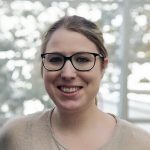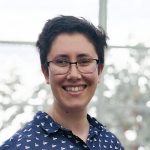Providing a support network for female Master’s students
In a fifth-floor conference room at NTNU’s Dragvoll campus, a small group of young women sit around a table. Over the next hour, each student reviews her progress on her Master’s thesis, sharing her triumphs with the group and soliciting suggestions for how to cross the barriers she’s encountered. At the end of the hour, the meeting breaks into informal chat, the students leaving the room in pairs and trios, each more confident than when she came in.

We are Isabella Fritz and Evelyn Milburn, two postdoctoral researchers in the Department of Language and Literature, and we co-founded the Women in Language Science Club (WiLSC) last autumn under the guidance of our supervisor, Dr. Mila Vulchanova. Our goal is to connect female Master’s students conducting language research both with each other and with early-career researchers (i.e., postdocs). These connections can help Master’s students navigate through challenges that women face in academia, as well as provide resources for learning critical research skills such as academic writing and statistics.
Countering Impostor syndrome
As early-career researchers, we can relate to the worry and stress that comes with conducting your very first study for your Master’s thesis. Many female students (as well as female academics) experience Impostor Syndrome, the constant feeling of being unqualified or not smart enough to study for a graduate degree– despite clear evidence to the contrary. In our club meetings, we tackle the students’ self-doubts by giving them the chance to talk about their concerns and to benefit from our experiences as researchers and recent students. “The club has provided us with a safe space to discuss real issues and concerns about research in our field! It has been comforting to know that … we are not alone”,says one club member.
Strengthening research skills
We also help students develop and strengthen their research skills. By providing small-group training in topics essential for a successful Master’s thesis, we aim to build up students’ confidence in conducting their own studies while simultaneously promoting a strong research mindset. This semester, many of the club members are excited about an upcoming lecture on basic statistics for the language sciences, and we also provide opportunities for peer review and development of writing skills.
For us as postdocs, it’s been great to see these students grow more enthusiastic and confident about language science over the past few months: it reminds us of why we love our field of research! We hope that their experience in WiLSC will inspire them to continue their research careers by completing a PhD. But no matter their future career, the skills we support in WiLSC—critical thinking, science fluency, and self-confidence—will be essential. And our twice-monthly club meetings have far-reaching benefits. Says another club member, “the club even helped me find a topic for my master thesis, and friends from all over the world”.
That’s the best news we could hear.

Isabella Fritz
Fritz is a postdoctoral researcher at the Department of Language and Literature. Her academic background is in Linguistics and in her current research she is investigating how the brain is processing language.

Evelyn A. Milburn
Milburn is a Postdoctoral fellow at the Department of Language and Literature. She is interested in how the language comprehension system uses different sources of information to build meaning during comprehension, particularly focusing on figurative language.

